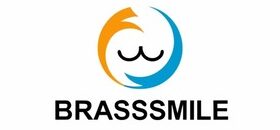Choosing between internships and freelancing can feel like standing at a career crossroads. Both avenues have their own opportunities for growth, skill-building, and earning potential. So, which one truly sets you up for long-term success? Let’s discuss.
Getting Down to Basics
The Definition of Internship
An internship is a more or less structured position, often temporary, bought to gain hands-on experience in a certain field under the supervision of professionals.
The Definition of Freelance
Freelancing is self-employment, whereby you provide specific services to clients or entities on a project or contractual basis.
A Few Quick Differences
Internships offer a well-defined learning environment and sometimes a potential for full-time employment. Freelancing offers the freedom of self-control-based work and income but comes with the challenge of having to manage oneself.
Career Benefits of Internship
Structured Learning Environment
Interns get exposure to mentorship and real-life workflows that fast-track their professional growth.
Networking Opportunities
Working within an organization provides you with a forum to establish some valuable industry contacts.
Industry Recognition and Credibility
Being able to say in an interview that you interned at a reputable company shows future employers that you are worthy of consideration. Basically, companies “brand” you in their favor by letting you intern with them.
Entry into Full-Time Employment
Some companies hire their interns into full-time jobs, thereby turning these short-term engagements into rewarding career opportunities.
Career Benefits of Freelancing
Independence and Flexibility
You get to choose clients, projects, and schedules-all are perfect candidates for self-working individuals.
Building a Versatile Portfolio
Competing in diverse industries is very common among freelancers whereby they create a vast portfolio.
Direct Client Relationships and Earnings
Negotiating rate can make freelancing even more profitable.
Honing Entrepreneurial Skills
Freelancing imparts the marketing, negotiation, and management skills one would require for life.
Developing Skills Both Ways
Technical Difficulties
Internships may equip one with technical working knowledge on specific company tools, whereas freelancers are forced to diversify and acquire such skills by working within various client parameters.
Soft Skills and Communication
Both paths offer opportunities for developing communication, creative problem solving, and adaptability.
Time Management and Discipline
Interns commit to a time schedule, while freelancers usually have to create theirs.
The Financial Aspect
Stipends and Project Payments
Interns usually receive a fixed stipend, whereas freelancers can make more by taking more projects.
Long-Term Earning Potential
In the early stages, freelancers might bring home more cash than intern-level fixed payments, yet likely, internships may open the gates to jobs that pay much better.
Work-Life Balance Considerations
Getting Your Hours in with Internships
You work according to the 9-to-5 office hours and get your structure and routine.
Freedom and Conflicts of Freelancing
Setting your own time might blur the boundaries between working time and personal time.
Industry Preferences
Tech and Creative Fields
Freelancing flourishes in web development, design, and writing.
Corporate and Traditional Sectors
Internship remains a standard entry point for finance, law, and consulting careers.
Personal Growth and Confidence
Mentorship with Internships
Learning the ropes under experienced professionals will allow for increased confidence in what one is doing and career clarity.
Building Self-Reliance with Freelancing
Directing clients and deadlines nurtures independence and strength.
Common Challenges
Competition for Internships
Demand is so high that in a very big way your applications need to stand out.
Fluctuating Client Base for Freelancers
The bonanza and meltdown phase of workloads and incomes come when one’s clients don’t become consistent.
Blending Experience
Hybrid Career Pathways
Many professionals start in the world of internships and freelance on the side.
Building a Robust Resume
Listing both internships and freelance work looks good on any résumé.
How to Choose What’s Right for You
Analyze Career Path
Do you see yourself moving up a corporation or flying free as an entrepreneur?
Consider Financial Requirement/Lifestyle
Internships serve well thank stability; freelancing can bring higher short-term income.
Tips to Succeed on Either Side
Networking and Self-Branding
Go to networking events, build a fancy LinkedIn profile, and spread the word about your accomplishments.
Continuous Education and Skills Upgrade
Keep enrolling into fresh courses, turn a keen eye toward trending industry developments, and never cease to improve.
Ending on Career Growth
Internships and Freelancing are not two roads diverging and will end up separate. It depends on your professional needs, lifestyle, and how you learn. Some are incredibly good in a mentorship world, some better work alone. A better way for successful career growth might even be with both.
FAQs
Q. Which is better for beginners: internship or freelance?
Internships are for those willing to learn with structured guidance. Freelancing is for those self-driven individuals.
Q. Can you freelance and do an internship at the same time?
Yes, it would be advantageous to learn more skills and make a little more money; however, effective time management is recommended.
Q. Do freelancers make more money than interns?
Quite often, yes, because they charge according to their project and could potentially outpace an intern with a fixed stipend.
Q. Which option helps build a stronger résumé?
Both add value to the résumé — internships show industry experience while freelancing demonstrates independence and varied skills.
Q. What is the best choice for long-term career growth?
Depending on your goal, corporate career may lean towards internships, while creative/entrepreneurial career may prefer freelancing.




